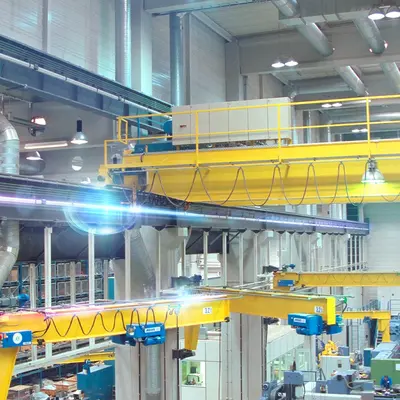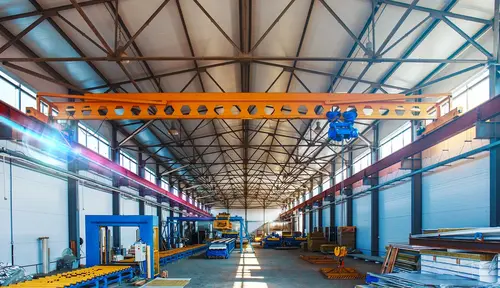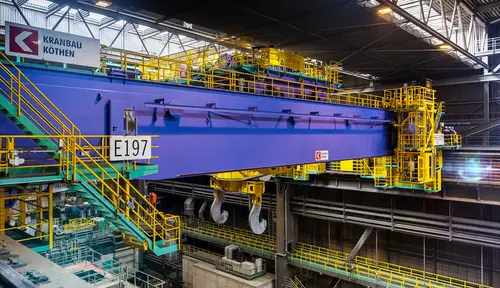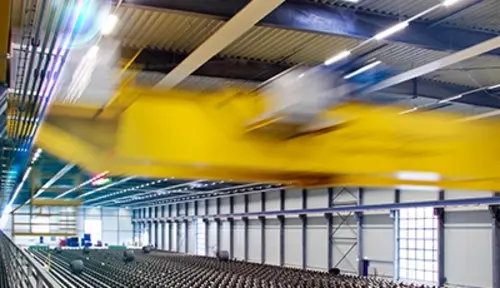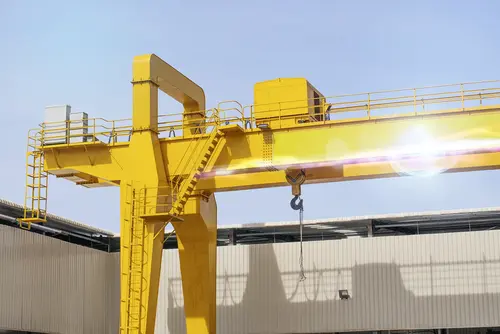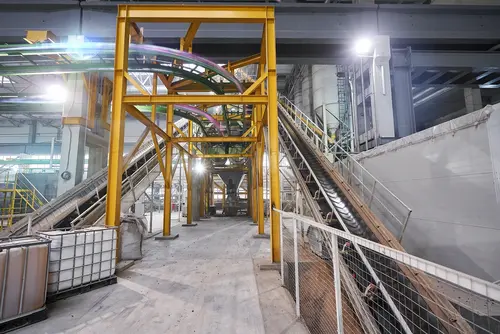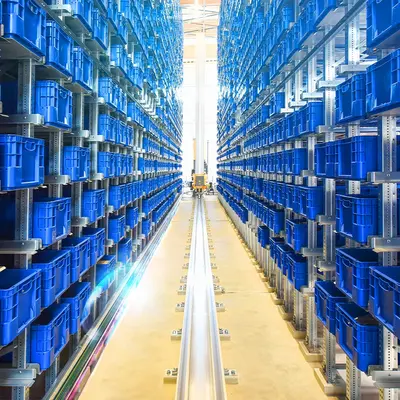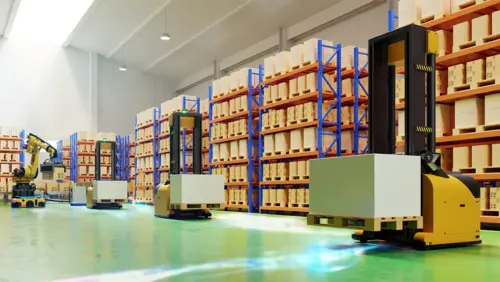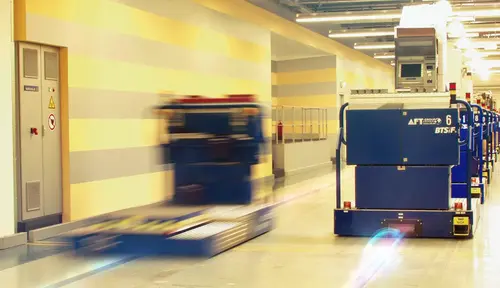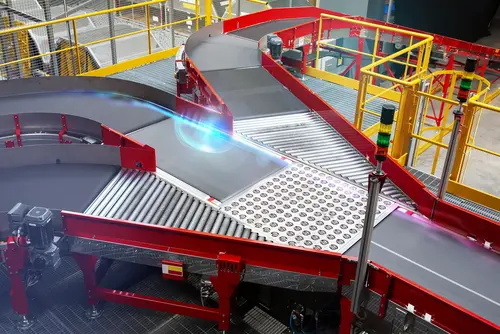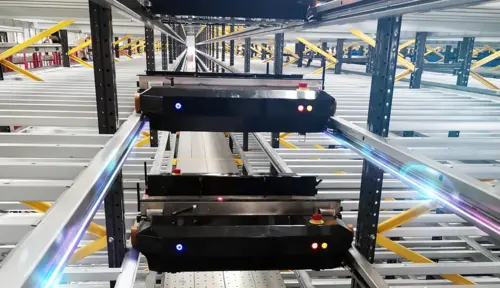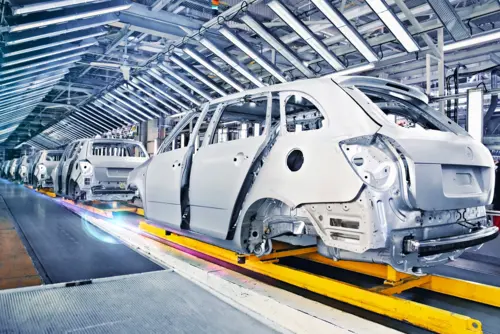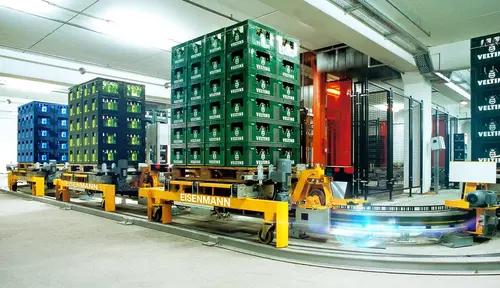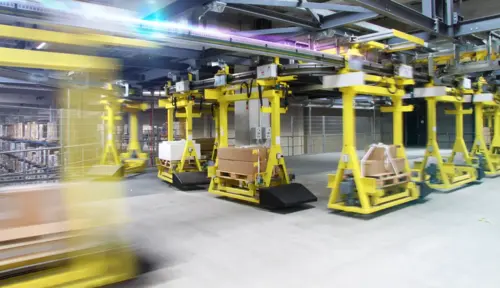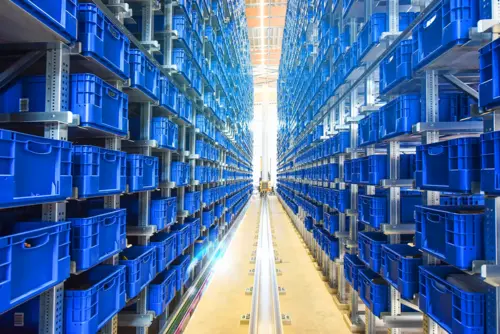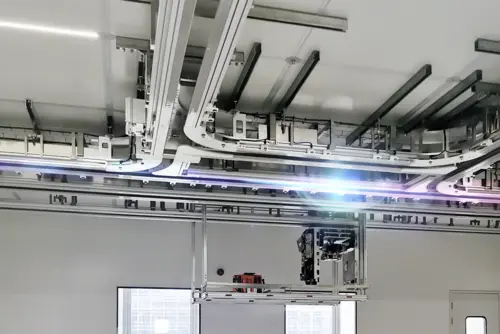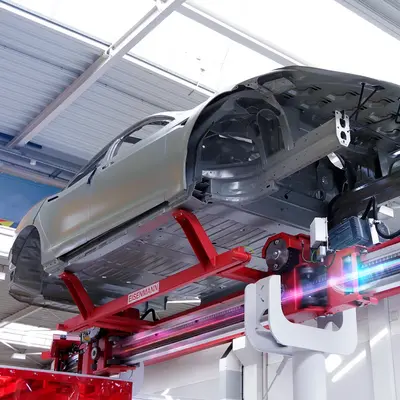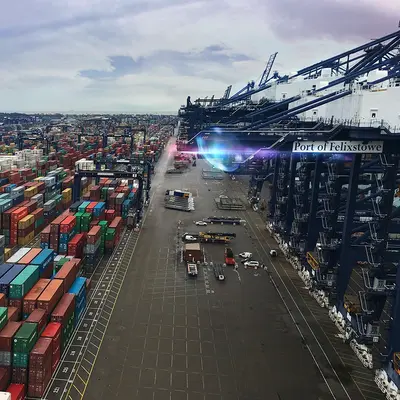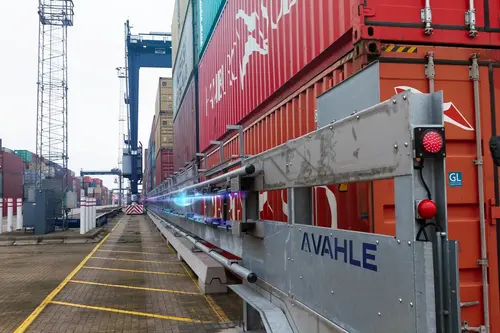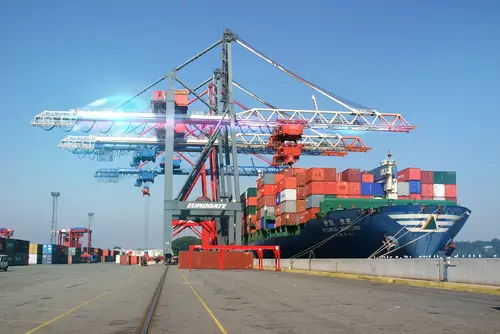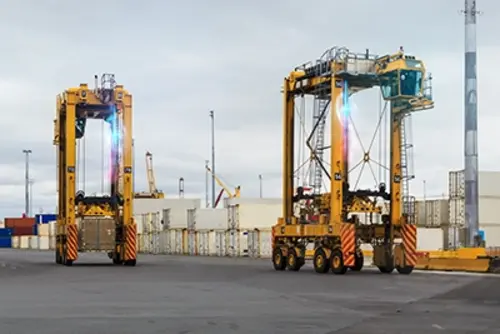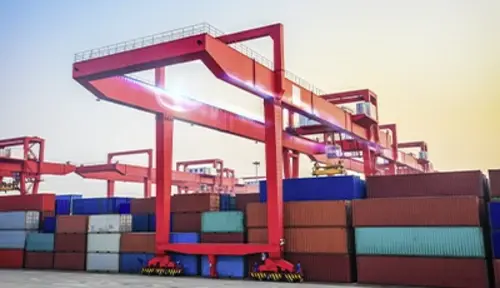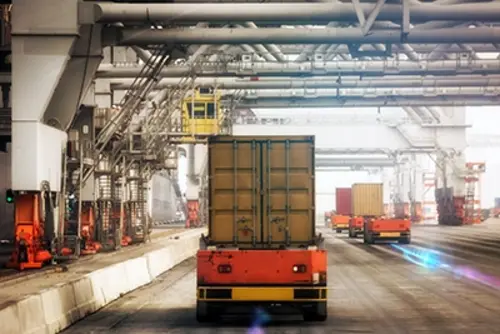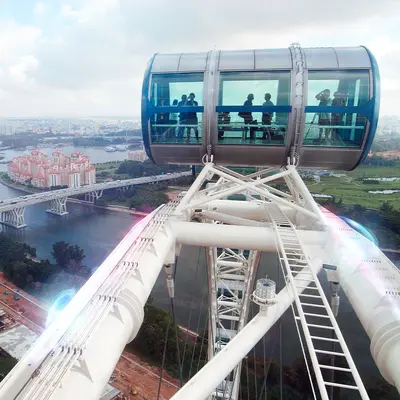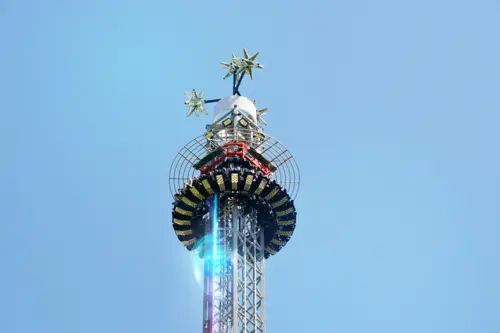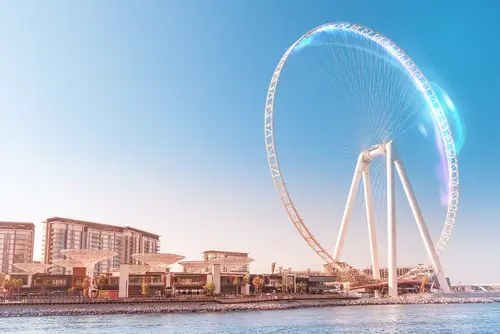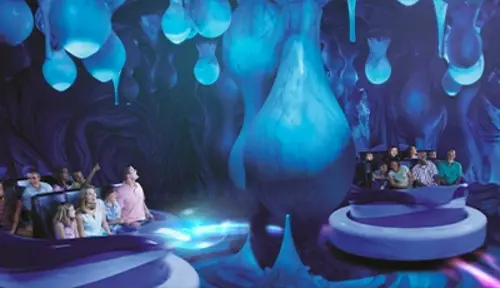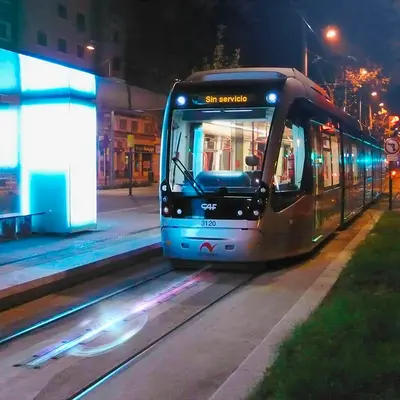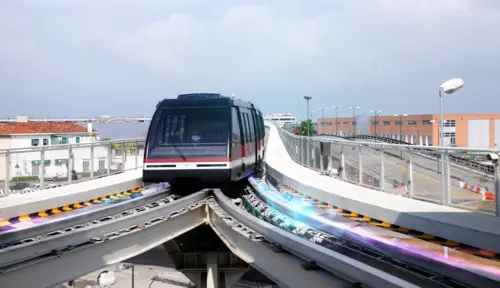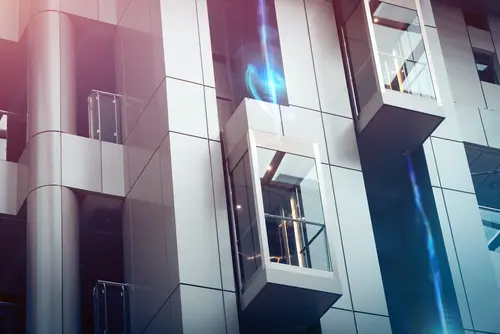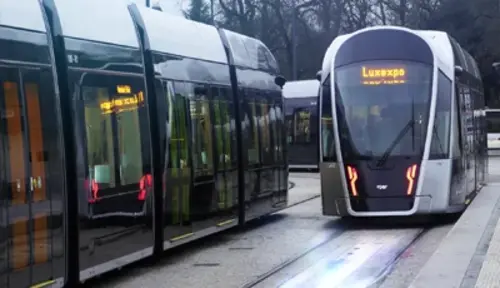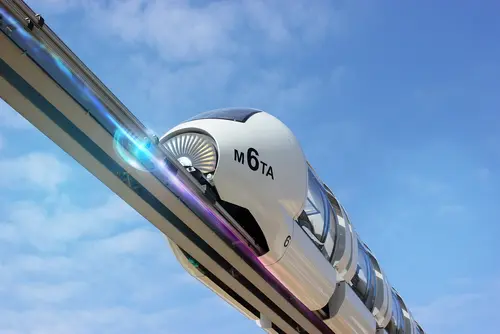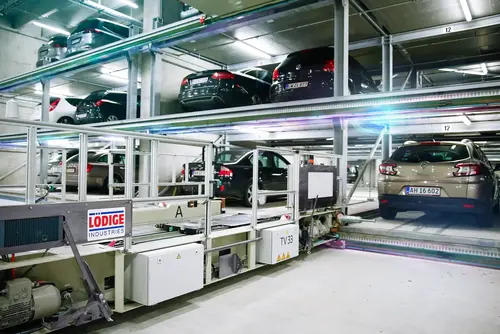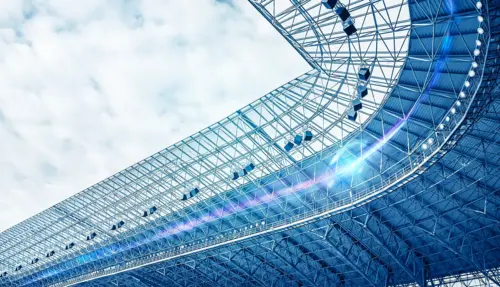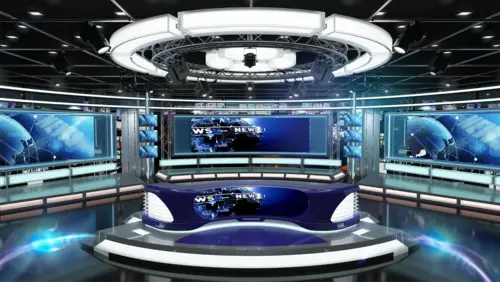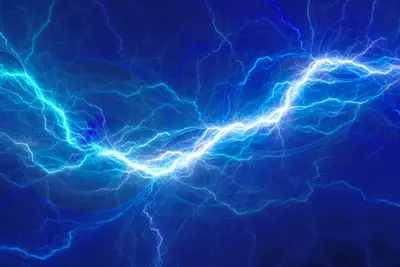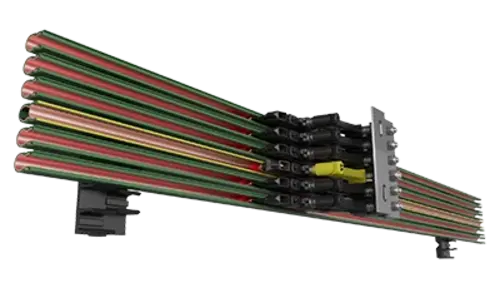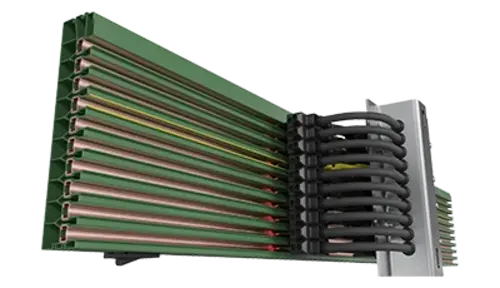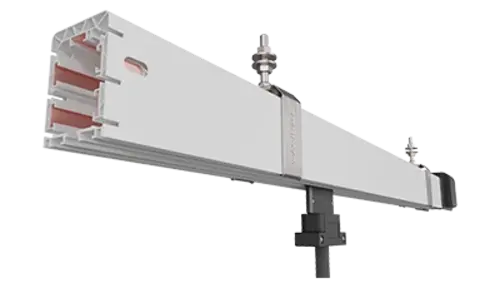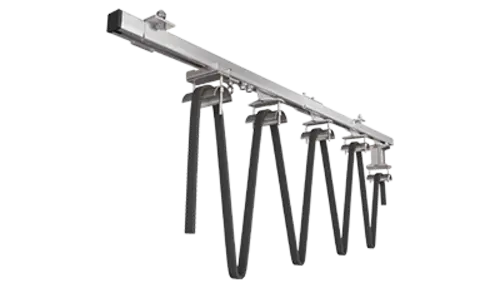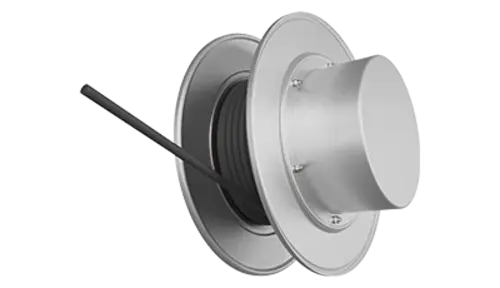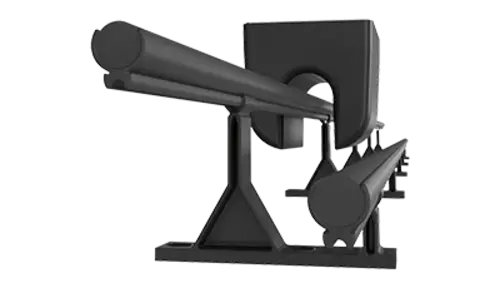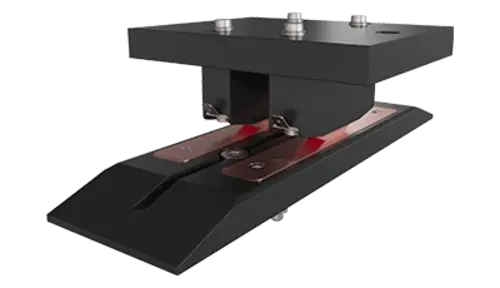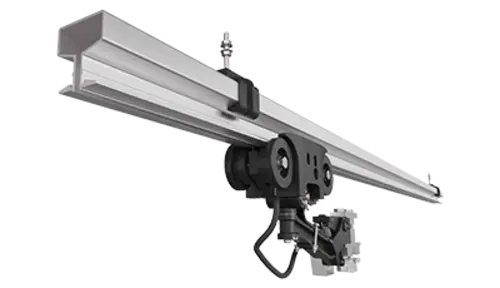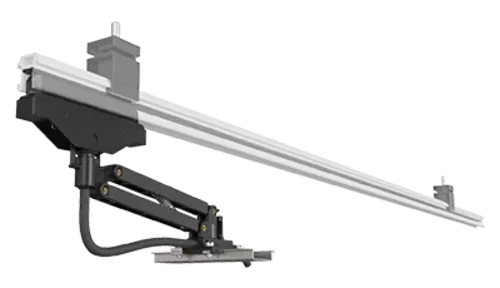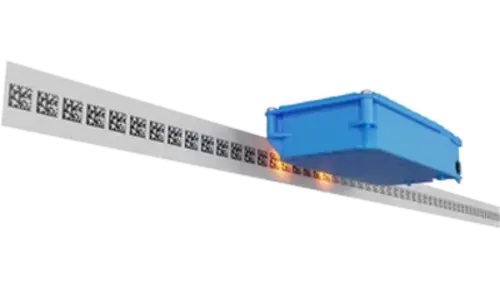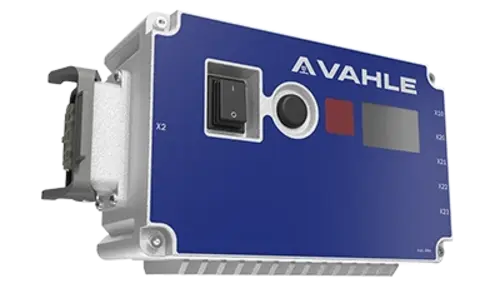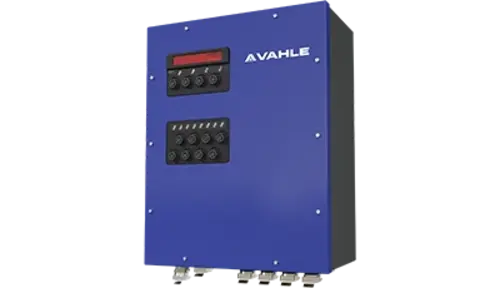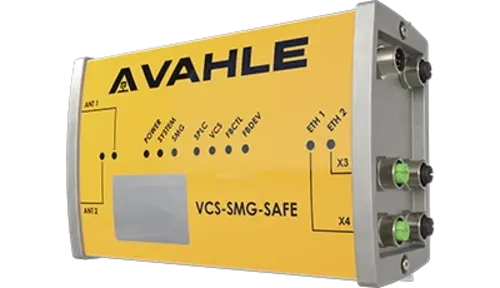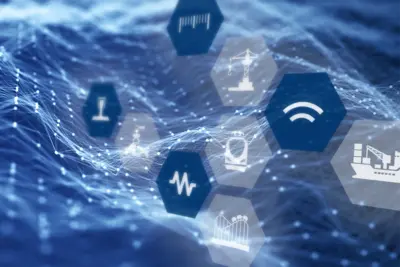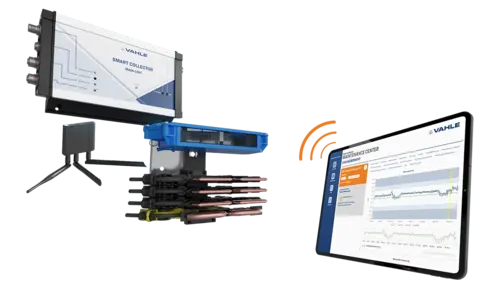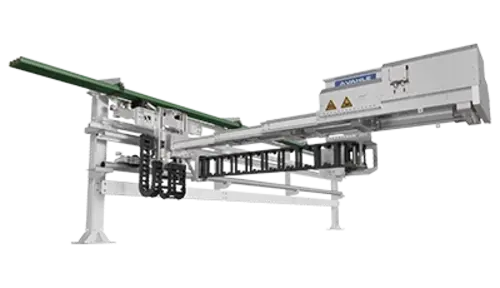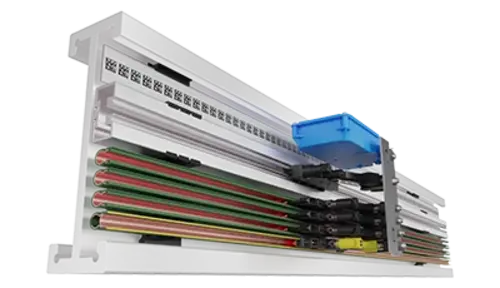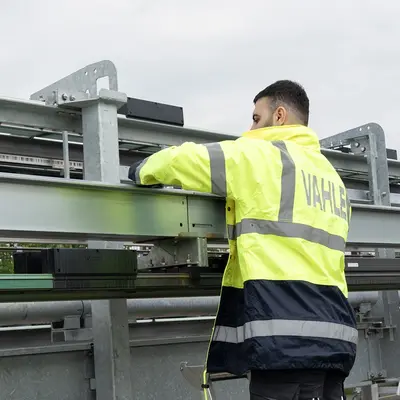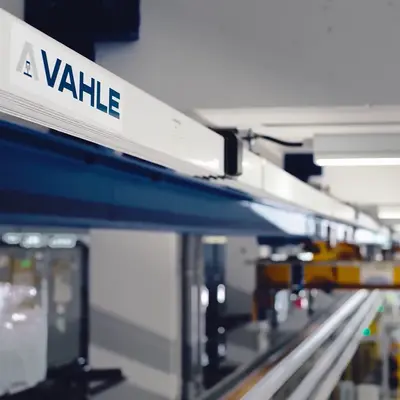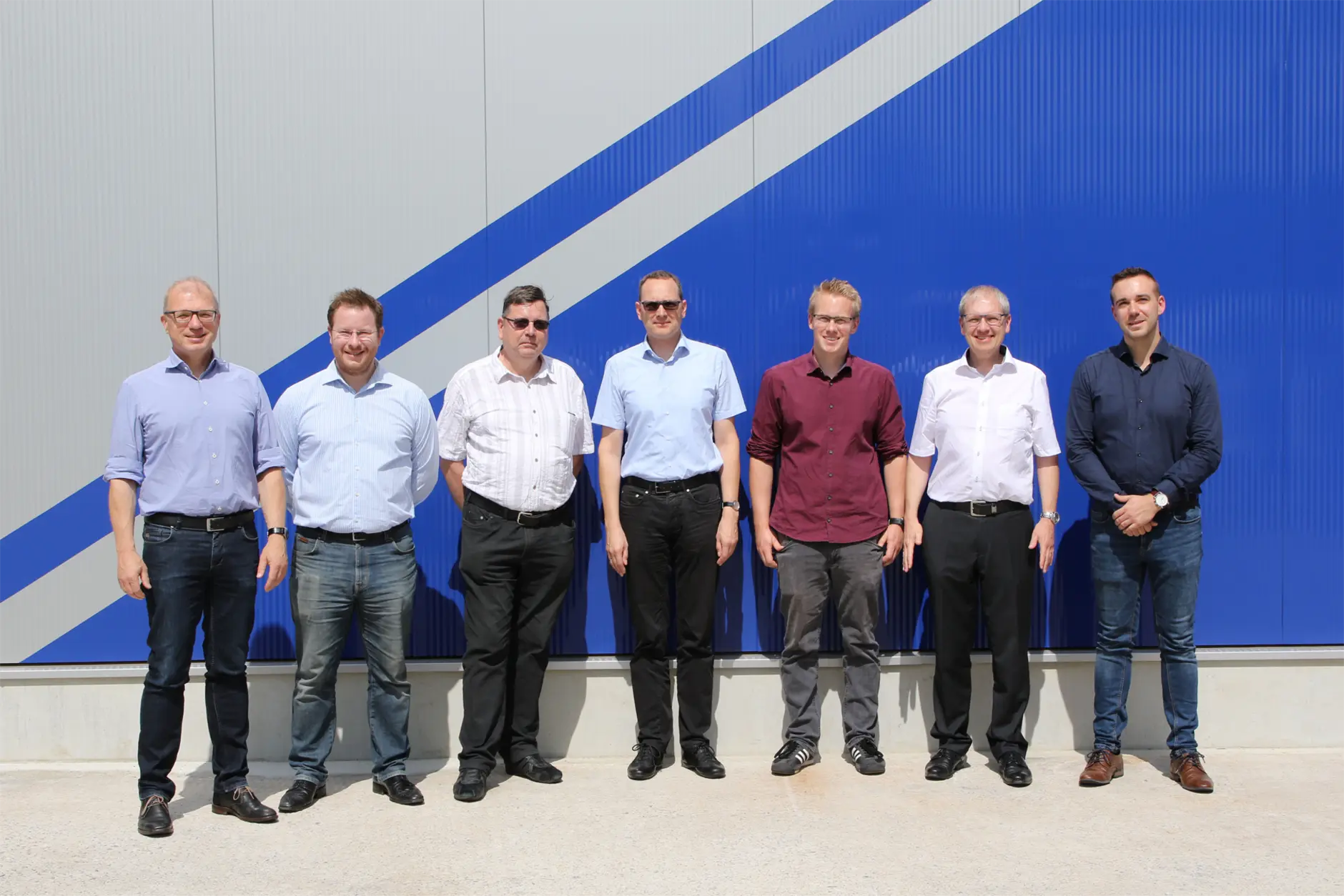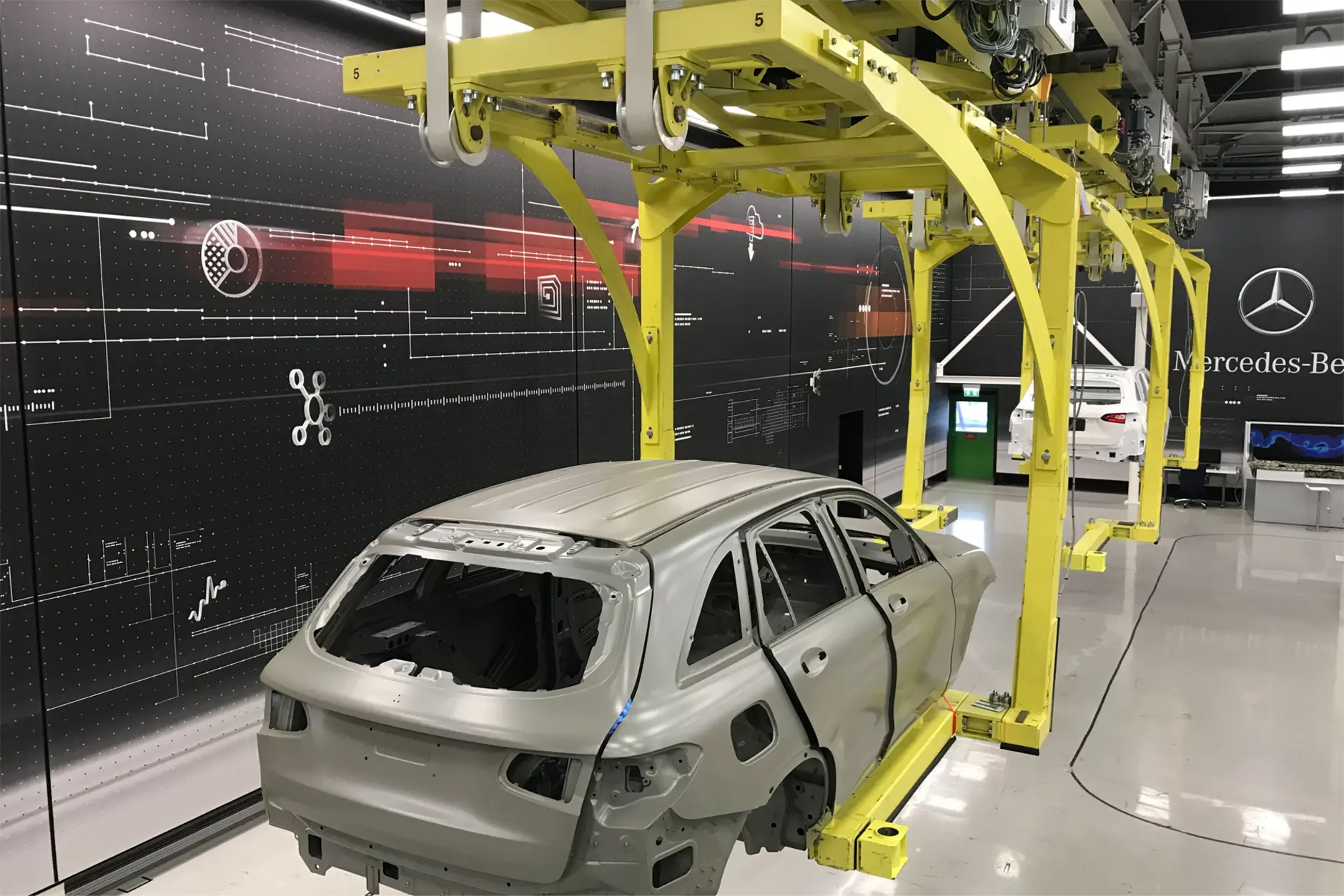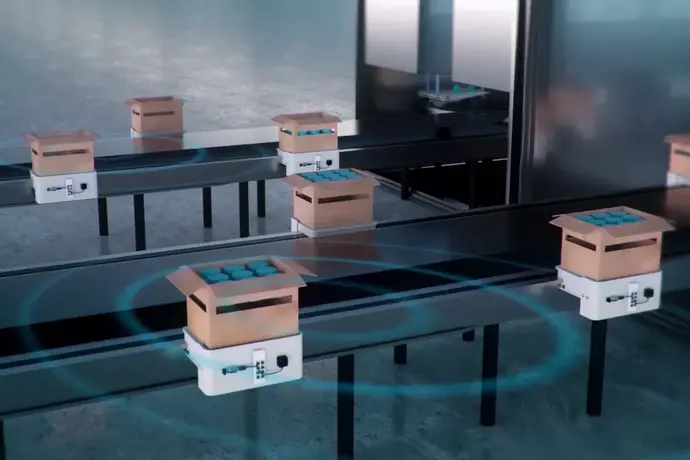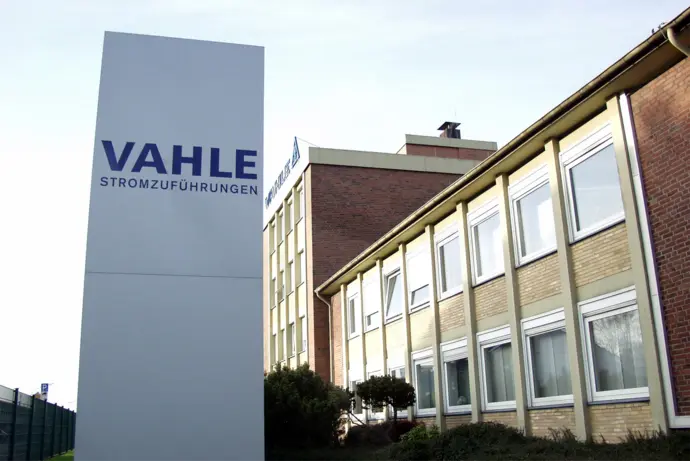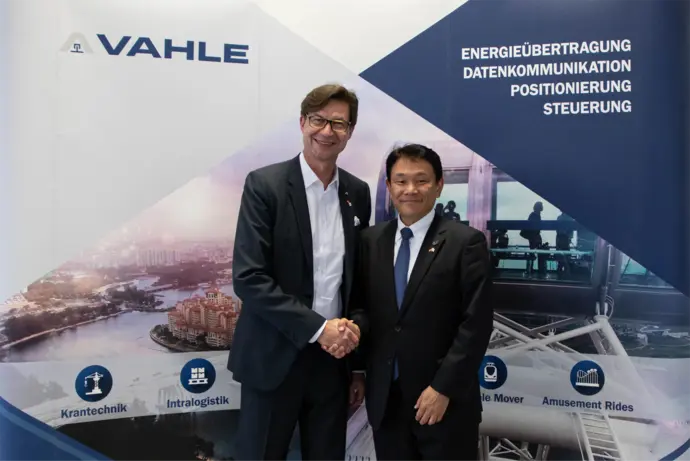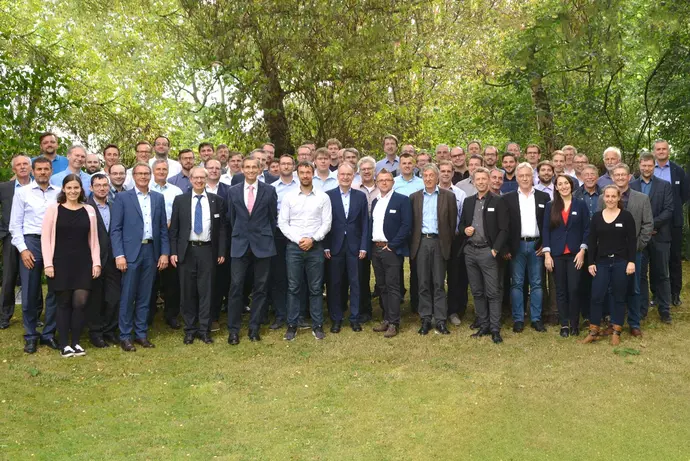Efficient production lines with DC-fed conductor system
Nowadays, three-phase 400-volt AC voltage is used as standard in industry. AC voltage is also used in the production lines of this world. The number of frequency converters incl. rectifiers and DC link, which is usually required per industrial consumer, is enormous. In order to significantly reduce the number of these AC/DC converters and to take advantage of other benefits of DC technology, the industry is looking for new solutions to become more efficient and sustainable here.
Kamen, December 18, 2019 - In the effiDCent funded project, Paul Vahle GmbH & Co. KG is conducting research together with consortium partners from research (TU Dortmund University, Ostwestfalen-Lippe University of Technology) and industry (Fa. Condensator Dominit, E-T-A Elektrotechnische Apparate GmbH) a DC-fed conductor system with integrated intelligent energy storage, central DC supply, buffer capacitors and arc monitoring, which is intended to optimize energy transmission in the production lines of the manufacturing industry.
Consortium partners from research & industry in the EU funded project effiDCent
Within the scope of the funding project, which is supported by the European Union and the state of North Rhine-Westphalia, the aim is to increase the energy efficiency of manufacturing and production lines and to minimize grid-related production downtimes, thus generating an optimal manufacturing process. Ideally, for example, an arrangement of buffer capacitors and intelligent energy storage devices would result in an enormous reduction in material and a change in conductor material when switching from AC to DC voltage. Furthermore, the customer saves on DC/DC converters and capacitors. Accordingly, they are only needed centrally at the stationary feeder.
On August 7, 2019, the consortium partners met for the joint project kick-off at the VAHLE Demo Center in Kamen. The project partners used this day to get to know each other and to present their individual core competencies. In addition, the project partners were given a tour of the power transmission specialist's production facilities.
"The world's production lines rely on AC voltage for power distribution," explains Marco Hermanni, project manager and coordinator at VAHLE. "At the moment, the energy supply to the production lines via conductor system is almost without exception industry-wide via alternating voltage, which, however, has to be converted twice for each customer to the on-site conditions via DC converters and DC link capacitors."
Converting the power feed to DC voltage allows for great efficiency benefits. In this project, DC-based busbars are being researched for efficient power transfer in manufacturing lines, such as in the commonly used electric monorail systems. Major innovations would be the massive material savings of copper through DC transmission as well as alternative conductor materials, the use of a central DC supply with fault disconnection and resulting size reduction of the converters through regulated DC voltage and an arc detection system. In addition, the addition of buffer capacitors along the conductor system brings dynamic stability while decreasing overall capacitance. In the end, the use of smart energy storage to cover highest peaks of load demands for short periods of time would provide uniform conditioning of energy demand.
Increasing the energy efficiency of production lines in the automotive industry
The research consortium is breaking new ground with the installation of buffer capacitors along the conductor system. In particular, ensuring stability is the main challenge, requiring considerable research effort. Nevertheless, the benefits of the proposed DC-powered conductor system are immense. By switching from AC to DC in combination with buffer capacitors, a significant reduction in the amount of copper required for the rail is achieved.
This could mean up to 50% material reduction combined with increasing the efficiency of the consumers by up to 15%. In addition, the central DC feed and the buffer capacity allow a much simpler design of the consumers. Furthermore, due to the intelligent energy storage systems, the feed-in now only has to be designed for the nominal power and no longer for the peaks - the peak power. This is because DC-based production is proving to be more robust to fluctuations in the supply and quality of the grid.
Stable and secure grid quality and recovery of braking energy in DC mode
In this way, in addition to enormous cost efficiency, decisive advantages for the energy transition and Industry 4.0 can be advanced. A switch to DC feed-in in industry would make it much easier to bring electricity from renewable sources into the grids.
The consortium benefits from the support of Mercedes-Benz AG. The project partners can test the research results on Daimler's own test electric monorail in Sindelfingen.
"The regeneration of braking energy, for example, is currently only possible to a limited extent due to the use of alternating current, or only with the use of special frequency converters with regenerative capability. The use of direct current offers further advantages here and not only ensures stable and safe network quality, but also makes the use of braking energy simply possible. And it doesn't stop at pure theory. The research results will be tested live in an electric monorail test facility at Mercedes-Benz AG in Sindelfingen, "explains Marco Hermanni.
Ultimately, the consortium expects that the overall energy efficiency of an electric monorail system can be increased by 17-25% through the proposed innovations alone, with significantly simpler and thus more cost-effective downstream equipment. The innovations in this project will be evaluated and finally qualified in a realistic demonstration system. This will be done in close coordination with the users, which is why it is expected that there will be excellent opportunities for exploiting the project results after project completion due to the major advantages of the system, thus strengthening the industry in NRW in the long term.
The effiDCent funding project at a glance:
- Thematic focus of the research project: Development of a DC-fed conductor rail for production lines in industry
- Project partners: Paul Vahle GmbH & Co KG (consortium leader), Dortmund University of Technology, Ostwestfalen-Lippe University of Applied Sciences, Condensator Dominit and E-T-A Elektrotechnische Apparate GmbH as associated partner.
- Project duration: July 2019 - June 2022
- Project sponsor is the Jülich Research Center PTJ.
- Electric monorail test facility at the Mercedes-Benz Sindelfingen plant.
- This project is funded by the European Union and the state of North Rhine-Westphalia.
